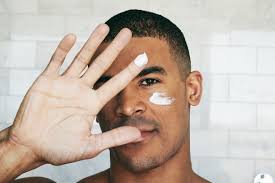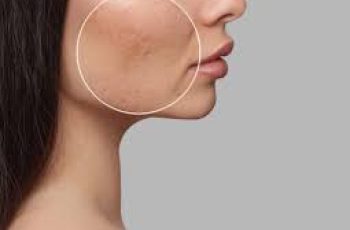
Retinol For Men – The Complete Guide
Retinol has become one of the most popular anti-aging ingredients for men’s skincare. As a vitamin A derivative, retinol boosts collagen production, evens skin tone, reduces fine lines and wrinkles, and unclogs pores. With consistent use, retinol dramatically improves the texture and appearance of men’s skin.
However, with so many retinol products now available, it can be tricky to find the right formula and strength for your skin. In this complete guide, we’ll explain everything you need to know about using retinol, from application tips to the best retinol products for every skin type. The best way to get started is to find your Baumann Skin Type.
What does retinol do?
Retinol is renowned for its ability to reduce signs of aging and photodamage. It’s also common in acne and dark spot treatments. Here’s a quick rundown of the key benefits:
Increases Collagen Production: Retinol boosts collagen synthesis in the deeper layers of the skin, plumping up skin and reducing wrinkles.
Evens Skin Tone: By increasing cell turnover, retinol helps fade dark spots and improve uneven pigmentation.
Unclogs Pores: Retinol helps prevent dead skin cell buildup, keeping pores clear.
Smooths Skin Texture: Retinol refines rough skin texture and improves the overall look of skin.
For specific details on how retinol works, check out this blog.
Retinol for men
Can men use retinol? Absolutely! Retinol offers the same anti-aging abilities for men as it does for women. I always recommend starting with a lower strength retinol and gradually increase strength as your skin builds tolerance.
Retinol side-effects and considerations
While retinol offers significant anti-aging benefits, it also comes with potential side effects to keep in mind. Many users experience dryness, peeling, redness, and irritation when starting retinol, especially stronger formulas. This retinoid reaction results from the increased skin cell turnover. Make sure to introduce retinol slowly and take precautions like avoiding other irritating actives during the adjustment phase. Drink plenty of water and use a moisturizer right for your skin type to counteract dryness as your skin acclimates. Start with the lowest strength retinol and work your way up based on your skin’s tolerance. If any severe reactions occur, stop using retinol and see your dermatologist. With careful use, most men can avoid negative side effects and enjoy the anti-aging benefits safely.
How and When to use retinol
How and when to use retinol
Only use retinol products at night, since sunlight deactivates retinol. Apply retinol serums according to our directions that we give you after you take the skin type quiz.
Give your skin some time to get used to retinol. Start by applying a pea-sized amount every 2-3 nights, then work up to nightly use. You may experience some mild redness, dryness, or peeling as your skin adjusts.
The best retinol creams and serums for men
Every retinol cream or serum is a little different, and each product works differently on each of the Baumann Skin Types. Some products contain ingredients that are not right for certain skin types, while others will be perfect for your skin. Below are some of my favorite products. To make sure you only buy the best products for your skin type, take the Baumann Skin Type quiz for free today!
Retinol for oily skin
Men with oily or acne-prone skin will like La Roche Posay Redermic R, which combines retinol linoleate and salicylic acid. The salicylic acid helps keep pores clear, while the retinol derivative smooths texture and evens tone. Start with application every 2-3 days if you have sensitive skin. Here are some more of my favorite anti-acne and oily skin friendly retinoids:
[[T14]]
Retinol for dry skin
On its own, retinol can dry some skin types, so it is best used alongside moisturizing ingredients to make sure the skin stays hydrated and healthy. A barrier repair moisturizer is a good choice if you have dry skin. Some of the best products for dry skin that contain retinol are:
[[M10]]
Retinol for dark spots
Exfoliating is an important part of dark spot treatments, and retinol is one of the best ingredients in skin care for cell turnover and increased exfoliation. The dark spots on the surface of the skin literally come off with the dead skin around them when you exfoliate. Here are some of my favorite dark spot treatment products with retinoids:
[[T15]]
Retinol for aging skin
Retinol and other retinoids are among the most common group of ingredients for anti-aging products. Retinol accelerates cell turnover (aids in exfoliation) and increases collagen synthesis, as well as protecting existing collagen from being broken down. Retinol is extremely well studied. You can find our YouTube retinoid playlist here.
To find out more about when to use anti-aging skincare, check out this blog!
Retinol strength – what does it mean?
A retinol product’s strength can be found on products usually indicated something like “2x” or “0.2%” to indicate the concentration of retinol. Both “2x” and “0.2%” mean the same thing. You might also see “5x,” “0.5%,” “10x,”1.0%”
Higher concentration retinol products are best for people with a tolerance to retinol. If you are new to a retinol focused routine, you should start with a beginner strength product. Here are some of my favorite products with retinol for men at varying strengths:
Low strength retinol
Lower percentage retinol decreases risk of irritation and dryness as your skin adjusts to retinol. Though concentrations like 0.25% retinol provide milder anti-aging effects than higher strengths, they still refine texture, fade discoloration, and smooth fine lines. Drugstore retinols are weak so they can be considered beginner retinoids.
You can learn more about the best retinol for beginners here.
Consistent use of retinol will let men reap rewards faster when eventually upgrading strengths. This Essopi serum is one of my favorites.
Replenix Retinol 2x is considered a low strength retinol, offering modest anti-aging benefits. It visibly improves skin texture, refines pores, and reduces roughness. Men with normal or oily skin often tolerate low strength retinol well when used properly.
This product combines 0.2% retinol with green tea, caffeine, and hyaluronic acid for two key benefits. First, the antioxidants and anti-inflammatories minimize irritation that can come with increased retinol strength. Second, added hydrators counteract potential dryness from retinol. For men still early on their retinol path, low strength formulas strike a useful balance. Here are some more of my favorite low strength retinoids:
[[T11]]
Medium strength retinol
Once you’re ready to advance past low strength retinol, medium 0.5% formulas like SkinMedica Retinol Complex 0.5 offer a noticeable boost in anti-aging abilities. The increased retinol concentration further accelerates cell turnover to improve skin tone, smoothness, and texture. 0.5% retinol also provides enhanced collagen stimulation to reduce fine lines and wrinkles.
However, the stronger 0.5% retinol also increases risk of dryness, peeling, and redness. Ease into using 0.5% retinol just 2-3 nights a week, then gradually increase frequency based on your skin’s tolerance. Proper moisturizers and uses of SPF are critical when stepping up to medium strength retinol. Here are some other great mid strength retinol products:
[[T16]]
High strength retinol
Once your skin fully acclimates to medium strength retinol nightly, 0.8 – 1% formulas provide prescription-level anti-aging results without a doctor’s visit. SkinMedica Retinol Complex 1.0 is one of the strongest over-the-counter options at 1% pure retinol. The high strength minimizes fine lines and wrinkles, fades dark spots and discoloration, and smooths rough texture.
However, significant experience with retinol is critical before attempting high strength formulas. Try to apply just 1-2 nights a week initially. Closely monitor for irritation and increase frequency slowly based on your skin type and concerns. Powerful anti-aging abilities come with equally powerful potential for dryness. It is extremely important to only use retinol of this strength at night, just like all other retinol strengths. Speak to your dermatologist before jumping right into a high strength retinol product.
Here are some more of my favorite high strength retinoids for men:
[[T17]]
Closing thoughts on retinol for men
Retinoids are an important part of anti-aging skin care whether you’re a man, a woman, or any other kind of person. If you are looking for a studied ingredient with a proven track record in treating multiple skin concerns, then consider this guide on retinol for men when starting your skin care journey. To learn more about retinoid strength, click here.
To learn more about the uses of retinoids, click here.
To learn more about retinol safety, click here.
To find out your Baumann Skin Type to change the way your shop for skin care today, click the button below!


